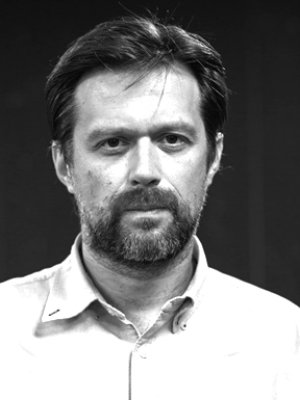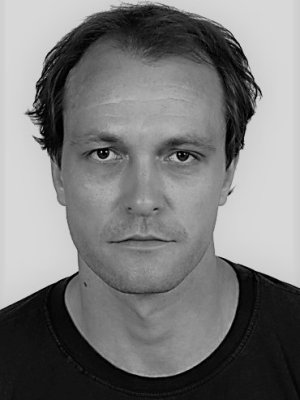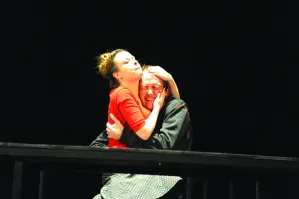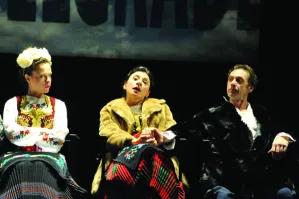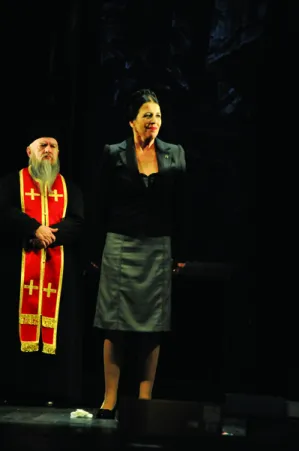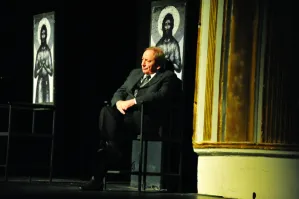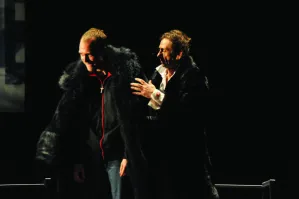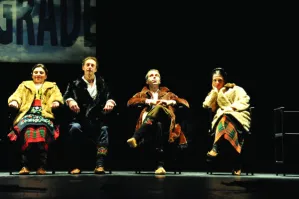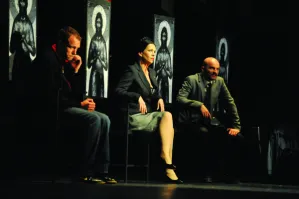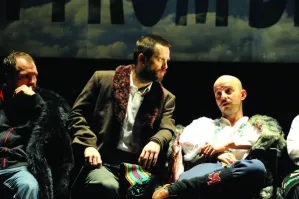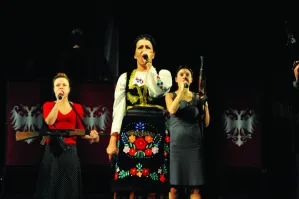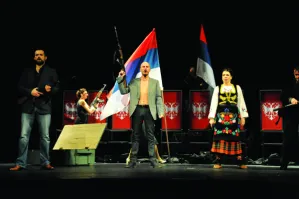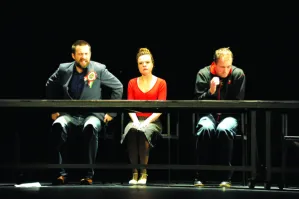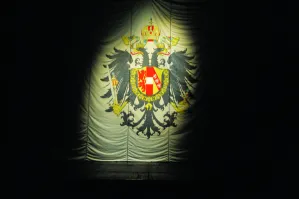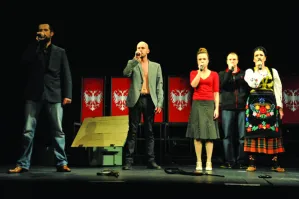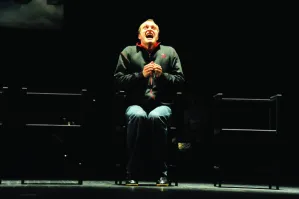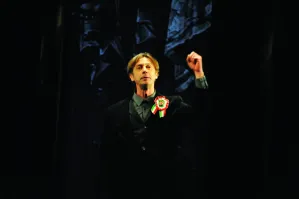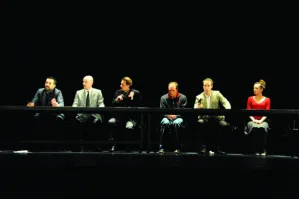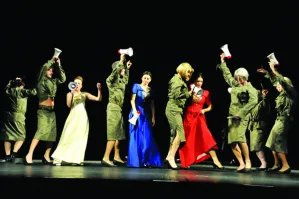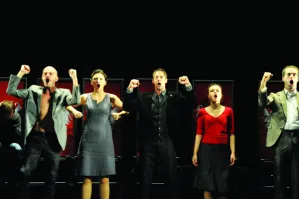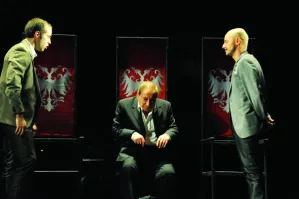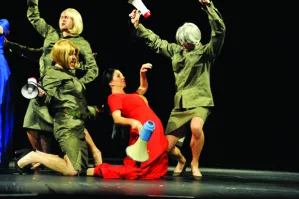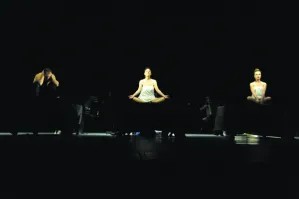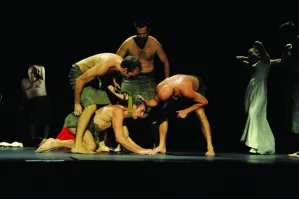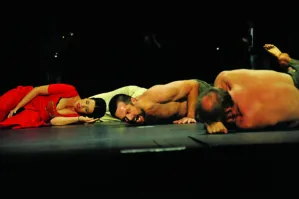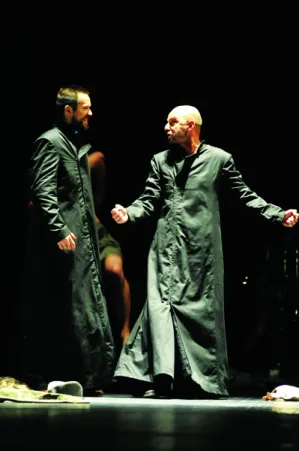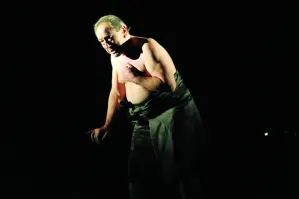The patriots
comedy by Jovan Sterija Popović
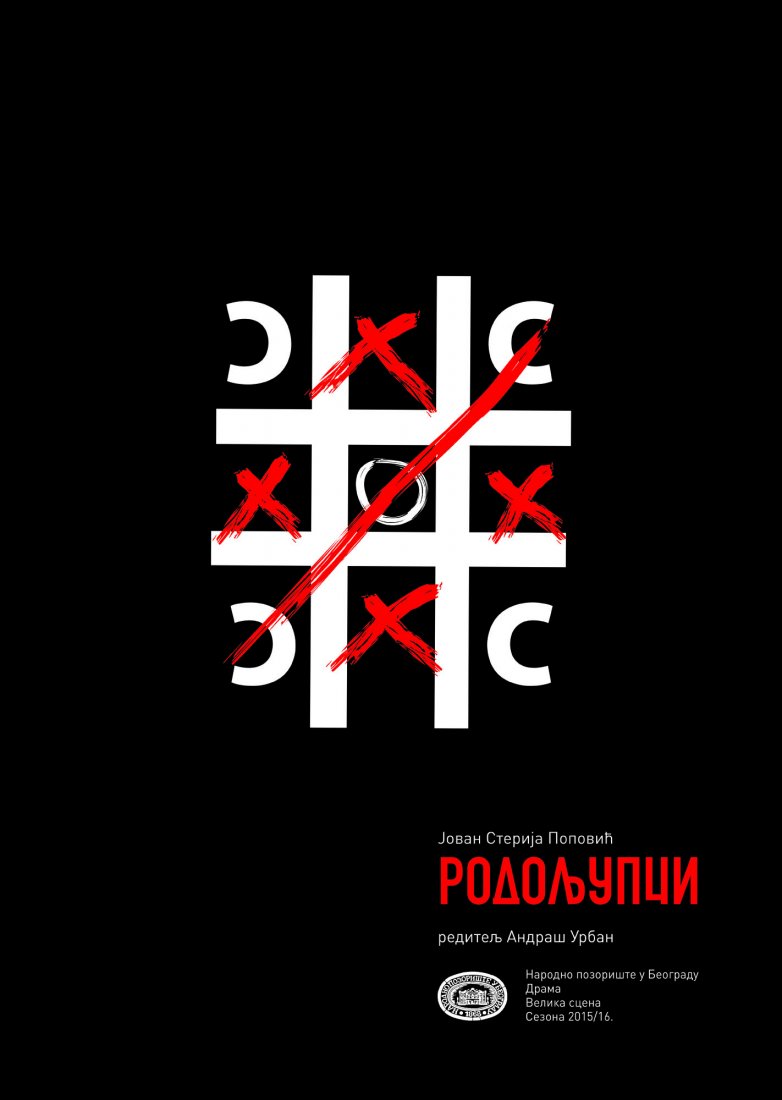
Sterija’s The Patriots on Stage in the National Theatre
On 30th December 1904, comedy The Patriots by Jovan Sterija Popović was staged for the first time in the National Theatre in Belgrade, more than fifty years after it was written and less than fifty years after the playwright’s death. The premiere took place during the Sterija’s Evening, the event that marked this great playwright’s birthday in period between 1898 and 1927. A critic reminded that although the author was a significant writer, the play had been staged for the first time not because of poor quality, but because of ban inflicted by the Hungarians and the Matica Srpska, and assessed that the play “was quite decently performed” and that the set “looked well.” The production was directed by then popular actor Čiča Ilija Stanojević, as was the custom at the time. Since Sterija was one of the pioneers of Serbian drama literature, during the season of 1904/05, half a century after his death, Sterija was one of the most performed national playwrights (second only to Nušić). The Patriots was performed twice during the season, and three times more before the First World War. After the First World War, the revived staging of Čiča Ilija Stanojević was performed again during the Sterija’s Evening, on 13th January 1921. On this occasion, the critics said, “The performers gave a lot of effort and love into the performance of The Patriots. Therefore, the evening was a pleasure to both general and knowledgeable public, as it was a sign of appreciation to national quality repertory and a sign of well deserved respect towards the admirable playwright”. It is interesting that Sterija was the national playwright whose plays were performed most often during that season; there were 19 performances of his pieces (5 performances of The Patriots). Nonetheless, it was also the last season of this staging of The Patriots. The following and, until now, the last premiere of the play took place on 8th March 1929; it was directed by Branko Gavella, Ph.D, whose coming to Belgrade was anticipated with a lot of enthusiasm by theatre and literary public. However, the enthusiasm diminished after his first productions, which were not received well. Therefore, a successful staging of a new Sterija’s piece “a modernised and refreshed, corrected and amended and, in a manner, newly constructed on stage” had a lot of importance both for the director and for the theatre. The critics’ assessment of The Patriots stated that it was “an important art experiment, daring, original, consistent, admirable and artistic”. The stage director’s basic intervention was to relinquish the realistic reading of the play and transfer the genre towards the grotesque, presented “with good measure and taste”. With certain cuts and changes in the text, he boldly brings novelty in our theatre, “Gavella added to Sterija. He presented the whole opening scene with multitude of extras and introduced several new types of characters”. The critics praised these moves, because they were “in the same spirit as the original play”. The set, designed according to director’s idea, “accentuates the place” and was assessed as “witty and ambitious”, as well as “pleasing and daring”. The critics commented on the cast’s interpretations as, “This has not been the case in a long time that actors have been so immersed in their roles”. Finally, the critics conclude “The Patriots has been a fine and European production”. However, the play remained on the repertory only for two seasons and had 9 performances.
Jelica Stevanović
STERIJA AND HIS PATRIOTS
Sterija told his contemporaries the following, “Beware of those who never stop speaking about patriotism; do not believe that loving one’s own nation means being blind to its faults and sins, and hate barbarically all people of other race and creed; stay away from fatal self-delusions, and hate the lie with all your souls, because the truth is our first duty to our nation; because, ultimately, the truth is the highest moral and the most powerful tool of progress.” The Patriots has special importance; it is a piece of strength and reason, a result of Sterija’s spiritual and literary maturity, a bitter satire of false and phraseology patriotism… a work of a witty spirit, an ironic observer and rational patriot, and as a socio-political representation of a period goes together with the best works of its kind in Serbian literature.
Jovan Skerlić, 1905 / 1914
After important events of 1848, in the overall noise of patriotic songs and celebration of heroes, in the sadness of unfulfilled hopes, a sensitive and rather lyrical and, sometimes, a very naïve poet had an eye for the other side of the revolution and audacity to present the events in a satire…
Milan Grol (1905)
The Patriots is one of the most interesting works of Sterija… unfinished, kept in manuscript in the Matica Srpska… Perhaps The Patriots is welcome now when we again find ourselves in unusual and dark times packed with false patriots, unsympathetic nerds, soulless robbers and tradesmen… and the times when nobler elements again, just like in Sterija’s comedy, withdraw from the noise and abundance of various ‘patriots’ who exploit the country and ruin the whole nation.
Sima Pandurović, 1921
Sterija has synchronised the plot in his comedy with real occurrences on the front, therefore, the situation in certain acts responds to the situation and the place of the plot… The events that lasted for almost two years in reality have been condensed here according to the laws of drama…
Those who plundered more are bigger patriots, or in other words, the greater ‘patriot’ the more right to plunder!... Sterija raises his voice against wrongs of the time and society. It took more courage for such a satire than for the one that would reveal social and political order, the leadership in power… it is understandable why Sterija did not publish this piece in his lifetime.
Vaso Milinčević, 1987
This comedy represents a precious account of true historical tragedy of little people in tumultuous times, which ruin the whole world they know, making them stand before political and moral choices which they either do not understand or have no capacity to deal with.
Predrag Marković, 2006
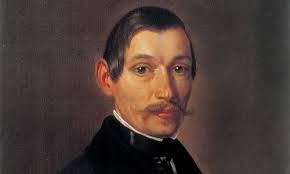 JOVAN STERIJA POPOVIĆ (1 January 1806 – 26 February 1856)
JOVAN STERIJA POPOVIĆ (1 January 1806 – 26 February 1856)
Jovan Sterijа Popović is the first and, together with Branislav Nušić, the greatest Serbian comedy playwright. Nonetheless, his accomplishments in improving Serbian culture exceed his literary accomplishments. He was born in Vršac, then in Austro-Hungarian Monarchy. During his studies in Pest, he encounters theatre, which becomes an object of his greatest affection and preoccupation. He writes and publishes his first poems and tragedies while in Pest. After coming back to his hometown, he works as a Latin language teacher and a lawyer, but he continues to write. His first comedy, The Liar and the Arch Liar (1830), revealed a comedy playwright in him. In 1840, he went to Serbia, a small country, newly liberated of Turks, in order to help his people in organising the newly acquired self-government. For a year, he works as a professor of law in the Lyceum in Kragujevac, where he establishes the students’ theatre troupe, and then he moves to Belgrade, where his activities in culture, sociology and education become momentous in the course of next eight years. He restlessly works on development of education, he writes textbooks, suggests rule books, establishes funds, establishes The Education Magazine, takes part in passing of the first law on education, takes part in foundation of the Academy of Sciences and the National Museum, he advocates promoting the national language into literature, he served as a head in the Ministry of Education for a long time… Besides these accomplishments, he takes part in establishing the first two professional theatres in Serbia, which unfortunately did not last for a long time – he presents them with his texts, translates the foreign ones, he supports them regarding the laws and administration, he coaches the actors, he writes reviews… In 1848, disappointed with political and social circumstances and in poor health, Sterija goes back to Vršac, where he devotes himself to writing. In many opinions, his best comedy, The Patriots, was written in this period as his reaction to fights between the Hungarians and the Serbs in Vršac during the Hungarian Uprising against Austrian government, 1848-49.
HISTORICAL CIRCUMSTANCES
The plot in the comedy The Patriots… takes place in turbulent 1848, when “the whole Europe is on fire”. In “the year of Spring of Nations”, the revolution spreads quickly from France, through Italy and Hungary and reaches a small town in Banat, Vršac, where most of the story takes place. This small town is the birthplace of playwright Jovan Sterija Popović… In order to understand the historical circumstances of the time when the play was written and the place where the plot takes place, we have to say that Vojvodina, with majority of Serb population, was a part of Austro-Hungarian Monarchy, while Serbia was an autonomous kingdom… Serbs under Hungarian rule did not have their autonomy, the right to their language, administration of schools, or the right to be involved in state government. These were the Serbs’ conditions to join the Hungarians in their uprising against the court in Vienna. When Serbs’ requirements were denied, the revolt against the Hungarian rule began. The Serbian Metropolitan summoned the People’s Assembly in Sremski Karlovci on 1st May, and they proclaimed “Serbian Vojvodina”, which was not recognised by the Hungarian government. In the meantime, the Croats also adopted anti-Hungarian policy and the government of the Principality of Serbia started supporting Serbs in Hungary by sending volunteers from Serbia during the summer of 1848. Thus, the war between South Slavs and Hungarians started. Many cities were destroyed during the war; civilians were killed, robbed and sent to exile. Since August, it had been Austria’s plan to use the Serbs and Croats against Hungary. The new Emperor, Franz Joseph, accepted the decisions of the May Assembly, but he did not define territory of Vojvodina. During spring of 1849, Hungarians launched a counter offensive and the Serbian movement was crashed in Banat. There were about 30-40 thousand of refugees in Belgrade and Serbia. The war in Vojvodina ended when Hungarians lost the war against Russians.
Zoran T. Jovanović, 2009
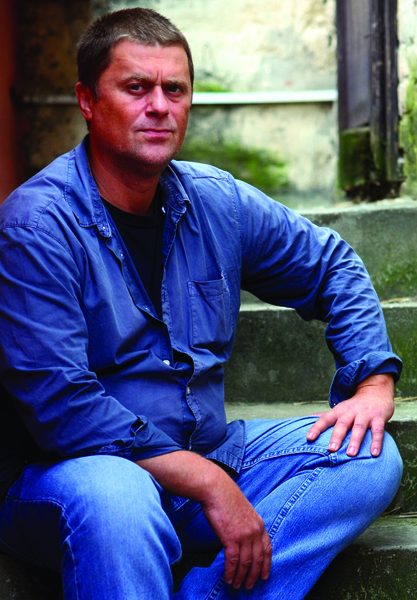 ANDRAŠ URBAN
ANDRAŠ URBAN
Andraš Urban was born in Senta in 1970. As a seventeen year old, he establishes an independent theatre and literary workshop as an author, director and actor. Later on, he establishes a theatre troupe ‘Aiowa’ (aiowa maffia), which treats the theatre as a specific and yet all-art-included ideological action. He starts studying directing at the Academy of Arts in Novi Sad, under mentoring of Professor Vlatko Gilić, where he studies film and stage directing; he directs plays in the National Theatre in Subotica. At the beginning of 1990’s he leaves the university, stops directing in theatre and then lives in seclusion for years. Urban graduates in stage directing in 2000, mentored by Professor Boro Drašković, and again intensively works in theatre. With support of MASZK from Szeged and his own ensemble (The Andraš Urban’s Ensemble) he produces independent theatre performances. Since 2006, he has been a Manager of Hungarian Theatre ‘Dezso Kosztolany’ in Subotica. He is a founder of an International Theatre Festival ‘Desire Central Station’. He directed plays in Subotica, Niš, Novi Sad, Belgrade, Szeged, Bitola, Ljubljana, Berlin, Cluj, Varna, Maribor, Rijeka. He has directed about 40 productions. He sees the theatre as an enlightened space for, sometimes, provocative action, where one thinks, speaks and organises a specific vision of creative reality. A production is, in his opinion, a communication and the other reality, which exists in its own right, but is created and presented in relation to a performer, presented reality and a viewer. His stage directing is implemented through interactive communication with an actor. Andraš Urban won the Jaszai Mari Award (the most prestigious award in theatre art in Hungary), Joakim Vujić Award, Pro Urbe of the City of Subotica, Pro Urbe of the City of Senta, Award for Parallel Art (Mediawave). His stage directing and productions won awards at the Festival of Professional Theatres of Vojvodina, Sterija Festival, Infant, Joakimfest, Fortress Fest, Teatarfest, Festival of Alternative Theatres of the Republic of Hungary, Festival of Hungarian Theatres, Bitef, Mess, MOT, the Days of Satire – Zagreb.
Premiere performance
Premiere 30th October 2015 / Main stage
Stage Director and Set Designer Andraš Urban*
Dramaturge and Associate to the Director Suzana Vuković
Dramaturge Slavko Milanović
Costume Designer Marina Sremac
Composer Irena Popović Dragović
Stage Speech Ljiljana Mrkić Popović
Stage Movement Tamara Antonijević
Set Design Realization Miraš Vuksanović
Assistant Stage Director Maksim Milošević **
Executive Producer Milorad Jovanović
Organiser Jasmina Urošević
The lyrics used in songs written by Jovan Sterija Popović, Đura Jakšić, Jovan Hadžić and Stevan Vladislav Kaćanski
Premiere Cast:
Žutilov Slobodan Beštić
Nančika Anastasia Mandić
Milčika Suzana Lukić
Šandor Lepršić Pavle Jerinić
Mrs. Zelenić Nela Mihailović
Šerbulić Hadži Nenad Maričić
Smrdić Nikola Vujović
Gavrilović Predrag Ejdus
Nađ Pal Branko Jerinić
Skoroteča Bojan Krivokapić
* We are thankful to Arpad Blaško, a designer, for cooperation.
** Student at the FDA Belgrade
Prompter Gordana Perovski
Stage Manager Aleksandra Rokvić
Make-Up Dragoljub Jeremić
Light Operator Srđan Mićević
Set Crew Chief Zoran Mirić
Sound Operator Tihomir Savić
SETS AND COSTUMES WERE MADE IN THE NATIONAL THEATRE’S WORKSHOPS

